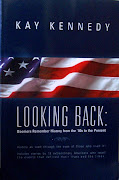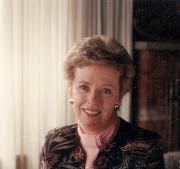Memories of the past. That’s what I prefer to call recent history. The word history conjures up painful sessions of learning boring dates, names, and useless information that couldn’t possibly have been of importance to me.
Now that I’m an adult I realize just how valuable knowledge of our country’s and the world’s history is. In fact as a civilized society, we cannot proceed with courage and conviction without knowing what has happened in the past. So history is extremely important to our very survival.
Since my school days, there’s been one important change in how I relate to history, and that is because I have now lived through several decades of lots of important stuff. All of a sudden, since this is the Baby Boomer era we’re talking about, HISTORY IS HOT!
In my anthology, Looking Back: Boomers Remember History from the ‘40s to the Present, 20 writers (including myself) share stories of growing up through the greatest, most triumphant and most terrifying of times.
As children, we faced the polio epidemic, which forced our parents to keep us at home to avoid crowds so that we didn’t become victims of a horrifying disease that could cripple us, or worse yet, force us to live in an iron lung for the rest of our lives. Today a Tennessee woman who had been in an iron lung for nearly 60 years and whose story was mentioned in Looking Back, died due to a power outage that shut down the machine that had kept her alive for all these years. Dianne Odell managed to finish high school, attend some college, and write a children’s book—all while encased inside the iron monster. Luckily for most of us, a vaccine was discovered in the early ‘50s that prevented polio so that we, as children, could once again enjoy swimming, movies, and the other joyous activities of summer.
We also lived in fear of the Cold War, Communism, and the BOMB. One writer poignantly recalls living in constant fear and vowing that she would do something about it when she grew up. And she did, which you can read about in the book.
Our world changed as integration and civil and voting rights for black citizens became a pressing issue, finally lifting them out of their second-class status that had existed since the end of the Civil War. I was there when Little Rock Central High became the first Southern high school to be integrated, and when President Eisenhower sent in the 101st Airborne Division to protect the rights of nine black students and ensure security amid swirling threats of violence and mob protests. But mine isn’t the only story of those times. Two other classmates also write about their memories of that frightening time.
Then President John F. Kennedy was assassinated. That November day in 1963 stunned and shocked our nation and destroyed any illusions of security we might have felt. Next came the assassination of Dr. Martin Luther King, civil rights leader, and a few weeks later, the assassination of Robert F. Kennedy, brother of John F. Kennedy and a candidate, himself, in the upcoming presidential election. We all had to wonder what was to become of our beloved country and us?
The major tragedy of those times was the Vietnam War and the tremendous anger and violent protests it generated among the Boomers. Suddenly our streets were filled with young and old protestors and hippies who voiced their opposition to a war that was decimating the numbers of boys and young men. Some protests were peaceful, but many violent, radical groups were also at work during the war. We could never be sure whether our society could withstand the onslaught of opposition by angry young Americans. Many young people marched and others dropped out of society, choosing communal living and drugs to numb their pain. The ‘60s and early ‘70s were both sad and exciting times to live through.
To have been alive to witness history being made during those decades presented an opportunity to those of us who were young to seriously contemplate how we each might make a difference in the world. And even those of us who sat on the sidelines were affected in lasting ways that will remain forever etched in our minds.
Yes, history is hot when you can picture the past vividly through the lenses of those who lived through it. And that’s what Looking Back offers readers: 24 terrific, poignant and very personal stories by those who lived through the Boomer era and truly know what happened then. Read the book and you’ll understand the events and moments that defined the Boomer generation. And maybe you’ll understand why.
Wednesday, May 28, 2008
Subscribe to:
Post Comments (Atom)


No comments:
Post a Comment